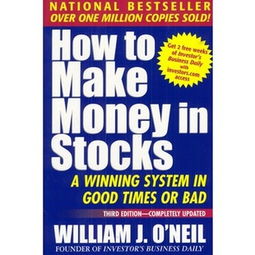Understanding the Economic Downturn

When the economy takes a downturn, it’s natural to feel concerned about your financial stability. However, it’s important to remember that even in tough times, there are opportunities to make money. This article will explore various strategies and methods to help you navigate through an economic downturn and find ways to generate income.
Investing Wisely

Investing can be a powerful tool to make money during an economic downturn. It’s crucial to do thorough research and understand the risks involved. Here are some investment options to consider:
| Investment Type | Description | Pros | Cons |
|---|---|---|---|
| Stocks | Investing in individual stocks or mutual funds | High potential returns, diversification | High risk, market volatility |
| Bonds | Investing in government or corporate bonds | Lower risk, steady income | Lower returns, limited growth potential |
| Real Estate | Investing in rental properties or flipping homes | Long-term income, potential for high returns | High initial investment, market fluctuations |
| Commodities | Investing in physical commodities like gold or oil | Act as a hedge against inflation, potential for high returns | Market volatility, storage and insurance costs |
Starting a Side Business

Starting a side business can be a great way to generate additional income during an economic downturn. Here are some ideas to consider:
-
Online freelancing: Offer your skills, such as writing, graphic design, or programming, on platforms like Upwork or Fiverr.
-
Online store: Create an e-commerce store on platforms like Etsy or Amazon to sell products you’re passionate about.
-
Consulting: Use your expertise to offer consulting services to businesses or individuals in need.
-
Teaching or tutoring: Share your knowledge by teaching online or tutoring students in your area of expertise.
Reducing Expenses
During an economic downturn, it’s essential to reduce your expenses and cut unnecessary costs. Here are some tips to help you save money:
-
Review your budget: Identify areas where you can cut back on spending, such as dining out, subscriptions, or luxury items.
-
Save on utilities: Unplug electronics when not in use, use energy-efficient appliances, and reduce water consumption.
-
Shop smart: Look for discounts, use coupons, and compare prices before making purchases.
-
Refinance loans: Consider refinancing high-interest loans to lower your monthly payments.
Building an Emergency Fund
Creating an emergency fund is crucial during an economic downturn. This fund can help you cover unexpected expenses and provide financial security. Here’s how to build an emergency fund:
-
Set a goal: Determine how much money you need to save for your emergency fund, typically three to six months of living expenses.
-
Automate savings: Set up automatic transfers to a separate savings account to ensure consistent contributions.
-
Choose the right account: Look for a high-interest savings account to maximize your earnings.
-
Monitor your progress: Regularly review your savings and adjust your contributions if needed.
Seeking Opportunities
During an economic downturn, it’s important to stay informed and seek out opportunities. Here are some ways to do so:
-
Networking: Connect with professionals in your industry to learn about potential job openings or business opportunities.
-
Continuing education: Invest in your skills and knowledge to



